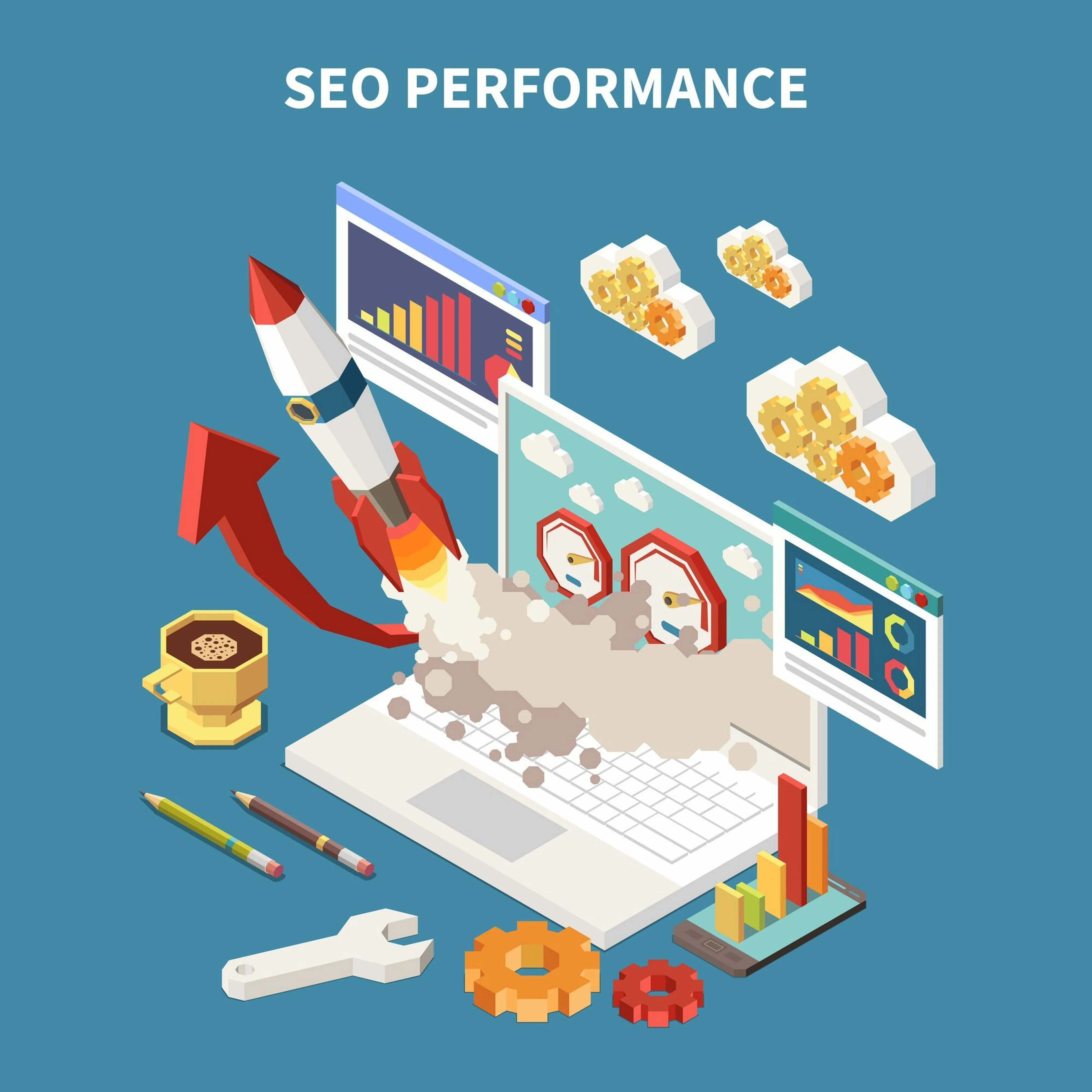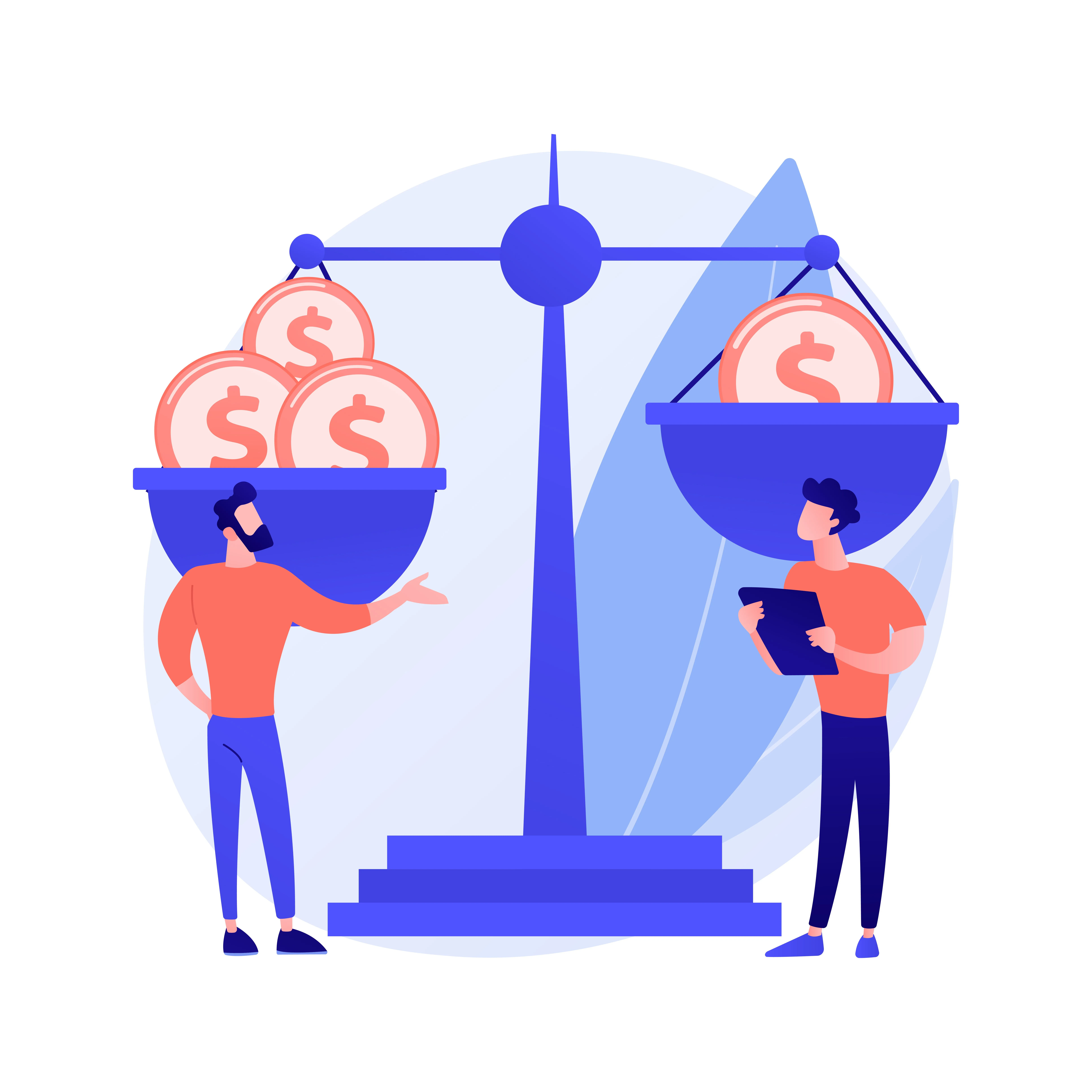SEO optimization comes in two varieties: on-page SEO, which involves optimizing elements within your own website, and off-page SEO, which focuses on external factors such as backlinks from other sites.
Both are very important in creating a comprehensive strategy that will help your company get noticed. In this introduction, we lift the curtain on these essential tools so you understand their importance and impact on digital marketing success.
On-Page SEO: the basis for the success of your website
In the bustling online marketplace, standing out is essential for any business and that's where on-page SEO comes into play. Think of on-page SEO as the foundation of your home. Just as a solid foundation supports the structure of a house, on-page SEO strengthens your website, ensuring it is easily found by search engines like Google.
Essentially, On-Page SEO involves optimizing various elements directly on the page so that search engines can index and understand the content efficiently. This optimization helps your pages rank higher in search results, leading to greater visibility and potentially more customers.
Key on-page SEO factors:

- Title tags: These are the headings that appear in search results. They should be concise, relevant and contain your main keyword. In the article you are reading, the main keyword is: On-Page vs. Off-Page SEO.
- Headings (H1): The title of your home page, usually the largest text on the page, should also include your main keyword. It is important that there is only one H1 heading on each page, and the remaining headings are properly arranged in the content structure.
- URL structure: URLs should be short, clear and descriptive. Where possible, include keywords. In this article, the main keyword appears at the end of the link visible in the browser.
- Alt text for images (alt): Describes images for search engines. It should contain keywords relevant to the image. Well-described images can be found on Google Images, which opens another path for Internet users to your website.
- Fast Loading Pages: Speed is key! A fast-loading website not only pleases visitors, but is also favored by search engines. However, few modern websites pay attention to it, so you can use it to stand out from the competition.
- Mobile-friendly: As more and more people browse on mobile devices, your website needs to perform well on screens of all sizes. Over 80% of website visitors use mobile devices!
- High-quality website content: Offer valuable, informative and original content to engage readers and encourage search engines to rank your pages higher.
- Internal Links: Links to other pages on your site that help search engines understand your site's structure and content hierarchy.
- Page schema markup: This code helps search engines return more detailed results to users by explaining the context of the content. Page schema is also known as structured data.
- Social tags: Tags like Open Graph and Twitter Cards help define how content shared on social media is displayed.
- Core Web Vitals: These metrics measure the health of your website in terms of loading performance, interactivity, and visual stability. You can perform a basic test using our page speed tester .
- Site Experience: Provide a pleasant user experience by making your site secure, mobile-friendly, and free from intrusive pop-ups.
Checklist On-Page SEO:

To optimize your website's on-page SEO, follow this simple checklist:
- Create attractive title tags using your target keyword.
- Use your primary keyword in your H1 heading.
- Simplify and structure your URLs with keywords.
- Add descriptive alt text to all images.
- Test and improve page loading speed.
- Make your website responsive and mobile-friendly.
- Create high-quality content that meets user needs.
- Create a logical structure of internal links.
- Add a page schema for improved search results.
- Use social tags to control the appearance of your content on social platforms.
- Monitor and optimize the performance of your core web metrics.
- Regularly check and improve factors affecting the comfort of using the website.
By addressing each of these on-page SEO elements, you will create a solid foundation for your website, paving the way for greater visibility, more traffic, and ultimately the success of your online presence.
What is Off-Page SEO?
While on-page SEO is the foundation of your website's success, off-page SEO is the force that increases your website's reach and reputation in the digital space. Off-page SEO refers to the strategies and actions you take outside of your website to influence your rankings on search engine results pages (SERPs). This aspect of SEO is crucial because it signals to search engines that your site is important to others on the web, thereby increasing your site's credibility, relevance, and authority - characteristics of a site that deserve a high ranking.

Key Off-Page SEO Strategies
- Link building techniques Building a solid backlink profile is like collecting votes of confidence from across the Internet. Search engines treat these links as confirmation of the quality and relevance of the content. However, not all links are created equal. Prioritize domains from credible and unique domains to maximize the impact on your rankings.
- Content marketing By creating and distributing valuable content through various channels - such as press releases, articles and blog posts - you attract attention and engagement. This can lead to natural link building as you share your content online, further strengthening your online presence.
- Social media Actively participating on social media can boost your off-page SEO efforts. Sharing content on these platforms increases visibility, encourages engagement, and can lead to more mentions and links to your website.
- Influencer marketing Collaborating with influencers can bring your brand into the limelight. Influencers can introduce your products or services to a wider audience, and a mention or endorsement from them can be a powerful addition to your off-page SEO strategy. In this matter, however, we must remember that it is important how many of the influencer's followers constitute our target group.
- Local SEO For businesses with a physical location or local service area, local SEO cannot be ignored. Creating and optimizing your business profile on Google, ensuring your name, address and phone number (NAP) are consistent across the internet, and collecting customer reviews all contribute to your local search rankings.
- Events and community involvement Hosting or participating in community events and activities can generate buzz and result in mentions, links, and reviews, all of which benefit off-page SEO.
Importance of Off-Page SEO:
In a vast and competitive digital marketplace, off-page SEO is your ally in building your brand's authority and credibility. It complements your on-site activities and tells search engines that your website is not only a self-proclaimed source of high-quality information and services, but also a source validated by others through links, social proof, and community presence.
By integrating these off-page SEO strategies into your digital marketing plan, you'll be better equipped to rise above the noise and reach the top of search engine rankings. Remember that your online reputation is just as important as the content you create. Nurture it with a careful off-page SEO strategy and watch your website's visibility and success grow.
Off-Page SEO techniques that work
Going beyond the confines of your website may seem overwhelming, but Off-Page SEO is where your brand truly begins to soar into the digital sky. Here are some off-page SEO strategies that have been proven to work in the real world:
- Building high-quality backlinks
- Engaging on social media
- Collaboration with influencers
- Content marketing
- Local listings and directories
- Forums and community participation
- Reviews and testimonials
Remember that Off-Page SEO is about expanding your horizons and cultivating relationships off-site. These strategies, if implemented carefully and consistently, can significantly increase your online presence and contribute to the long-term success of your business.
Differences between On-Page and Off-Page SEO
Understanding the difference between on-page and off-page SEO is like knowing the difference between having a well-oiled machine (your website) and being the talk of the town (your online reputation). Both are essential to your company's success in the digital marketplace.

On-page SEO is concerned with the technical details and content of your website. It is the process of optimizing individual web pages to rank higher in search results and gain more search engine traffic. Here you have direct control over the changes you make, such as:
- Improving content quality to engage readers.
- Improving title tags and meta descriptions to make them more clickable.
- Website structure with clear headers for easy navigation.
- Make sure your website is mobile-friendly to accommodate your growing mobile audience.
These elements on the website act as the first impression you make when someone visits your home. All this to make your website as attractive and user-friendly as possible.
Off-page SEO, on the other hand, is like the reputation you have among your neighbors. It covers the strategies you use off-site to influence rankings on search engine results pages. This includes:
- Building high-quality backlinks from reputable sites to show search engines that you are a trusted resource.
- Engaging with your community on social media to increase your brand's visibility and reach.
- Collaborate with influencers who can spread the word about your company.
- Encouraging satisfied customers to leave positive reviews, increasing your credibility.
Essentially, off-page SEO is about enhancing the authority and credibility of your website through the endorsement of other respected members of the online community.
To have a truly effective SEO strategy, you need to integrate on-page and off-page SEO. Think of it as a two-pronged approach: On-page SEO makes your site attractive to visitors, while off-page SEO builds your reputation with visitors and beyond. By focusing on high-quality content and user experience on your website and cultivating strong relationships and a solid reputation off-site, you will create synergies that will increase your visibility and improve your search rankings.
Remember that while you may have more control over your on-page SEO, your off-page SEO efforts are just as important. They work together to give search engines a complete picture of your website's relevance and trustworthiness. A balance between the two will help you not only climb the rankings, but also stay at the top.
Start optimizing your SEO today
When it comes to improving your website's search engine optimization (SEO), there's no better time than the present to start making changes that can have a significant impact on your online visibility. Here are some practical steps to improve your on- and off-page SEO, tailored to the needs of entry-level business owners looking to establish their online presence.

On-Page SEO
- Optimize title tags and meta descriptions : Make sure each page of your website has a unique title tag and meta description that includes relevant keywords. Think of these elements as a digital billboard for your website; they should encourage and inform.
- Improve your website's loading speed: A slow website can discourage visitors and negatively impact your website's search engine rankings. Use tools like Google PageSpeed Insights to analyze and optimize your website speed.
- Publish high-quality content: Content is king in the digital world. Make sure your website provides valuable and relevant information that addresses your audience's needs and questions. Use headings to organize your content and include keywords naturally.
- Ensure mobile responsiveness: More users are browsing on mobile devices than ever before. Make sure your website looks and works well on smartphones and tablets.
- Internal Links: Create links between pages on your website. This helps search engines understand the structure of your site and keeps visitors engaged for longer.
Off-Page SEO
- High-quality backlinks: Reach out to reputable websites and try to secure backlinks. Remember that it is quality, not quantity, that counts. One link from a respected industry leader is worth much more than many links from obscure, unrelated sites.
- Engage on social media: Share your content on social media platforms and interact with your followers. Social signals don't directly impact SEO, but they increase visibility and drive traffic to your website.
- Collaborate with influencers: Find influencers in your niche who may share your content or mention your company. Their endorsement can lead to increased traffic and backlink opportunities.
- Content Marketing: Publish articles, infographics or videos on other websites. This can introduce your company to new audiences and result in valuable backlinks.
- Local Directories and Reviews: List your business in local directories and encourage satisfied customers to leave reviews. Positive reviews can improve your company's online reputation and visibility.
By implementing these on- and off-page SEO strategies, you can improve your website's performance in search results, attract more visitors, and ultimately grow your business. Remember that SEO is an ongoing process, so constantly monitor your progress and adjust your strategies as necessary. The digital world is constantly evolving, and staying one step ahead requires staying current and adapting.
Learn and develop
The digital landscape isn't static, and your approach to SEO shouldn't be either. Just as the world around us is constantly changing and evolving, so too is the algorithmic basis of search engines.
These platforms are constantly improved and their aim is to provide users with the most relevant and high-quality content. What does this mean for you, the conscientious business owner? This means your SEO journey is a marathon, not a sprint.
It is essential to understand that the rules of the game can change from one day to the next. A strategy that will one day send you to the top of search results may become less effective as search engines update their algorithms. Therefore, learning about the latest developments in SEO is as important as establishing an initial strategy.
To keep your website up to date with these changes:
- Subscribe to SEO newsletters and blogs: Knowledge is power. Subscribe to reputable SEO newsletters and blogs to receive regular updates on the latest trends and algorithm changes.
- Connect with SEO communities: Join forums and social media groups where SEO experts share insights and discuss new tactics. Interacting with peers can provide valuable tips and real-world case studies.
- Attend workshops and webinars: Many industry leaders host educational sessions that can help you understand complex changes and help you adjust your strategy accordingly.
- Check your SEO performance regularly: Make it a habit to check your website's SEO performance. Use analytics to track changes in rankings, traffic and engagement, and adjust your methods as needed.
- Don't be afraid to experiment: Sometimes the best way to learn is to do. Test new SEO techniques on a small scale before fully implementing them to see what works best for your business.
Each step forward in your SEO knowledge not only strengthens your current position, but also prepares you for future changes. Remember that SEO is as much about responding to the present as it is about predicting the future. By committing to continuous learning and evolving your SEO strategies, you're not just chasing the algorithm; Your goal is to provide as much value to your audience as possible, which is the real heart of SEO success.
Summary
All in all, the journey to mastering SEO is both exciting and ongoing. Our guide walked you through key on-page elements like increasing site speed and prioritizing high-quality content, as well as key off-page tactics for securing credible backlinks and fostering social media connections.
Remember that the digital world is constantly evolving, and so are search engine algorithms. It's important to stay up to date and be proactive. Subscribe to relevant SEO resources, engage with online communities, and never stop improving your SEO strategies. By leveraging this continuous learning process and experimenting with new approaches, you will not only keep pace with change, but also stay ahead of the competition.
Implementing these SEO techniques may seem difficult at first, but the potential benefits in terms of online visibility and business growth are enormous. So take that first step, apply the tips in this guide, and watch your online presence flourish. Your commitment to improving your website's SEO is an investment in the future of your business.
FAQ
What is On-Page SEO?
On-page SEO refers to optimization strategies implemented directly on a website to improve its ranking in search results. This includes optimizing site content, improving meta descriptions and title tags, ensuring site performance and mobile compatibility, and using appropriate keywords.
How does content quality affect my website's SEO?
Content quality is crucial for SEO because search engines prioritize valuable, original, and engaging content that meets user intent. High-quality content attracts more visitors, reduces bounce rates, and encourages backlinks, which can improve rankings.
Are keywords still important for SEO?
Yes, keywords remain crucial to SEO because they help search engines understand the relevance of your content to specific queries. However, keyword stuffing is penalized; instead, focus on using relevant keywords naturally in your content.
What is Off-Page SEO?
Off-page SEO involves techniques used off-site to influence rankings on search engine results pages. This includes building backlinks from other reputable sites, social media marketing, and reaching out to influencers.
Why are backlinks important for SEO?
Backlinks, or links from other sites to your site, are essential because they provide a vote of confidence in the eyes of search engines. A site with a large number of high-quality backlinks is often perceived as more reputable, which can positively impact its rankings.
How can I improve my website's backlink profile?
To improve your backlink profile, create shareable and linkable content, engage in guest blogging, collaborate with influencers, and participate in relevant online communities. Always try to get backlinks from credible and relevant sites.
Does social media affect SEO?
While social media signals do not directly impact search rankings, a strong social media presence can lead to greater visibility, content distribution, and backlinks, which will indirectly benefit your SEO efforts.
How often should I update my SEO strategy?
SEO is a dynamic field with frequent algorithm updates. Review your SEO strategy regularly to ensure it is in line with current best practices. It is recommended to evaluate and adjust your SEO plan at least quarterly.
Can I do SEO myself or should I hire a professional?
Basic SEO can be done independently with research and effort. However, for more complex strategies or competitive industries, hiring an SEO specialist or agency may be more effective and time-saving.
What is the first step in implementing an SEO strategy?
The first step is to conduct an SEO audit of your website to identify areas that need improvement. Then prioritize your tasks, starting with on-page optimizations like content and technical fixes, and then move on to off-page strategies like building backlinks.
Remember that SEO is a marathon, not a sprint. Regularly implementing these practices can significantly improve your website's visibility and ranking over time.

Adam Naworski



